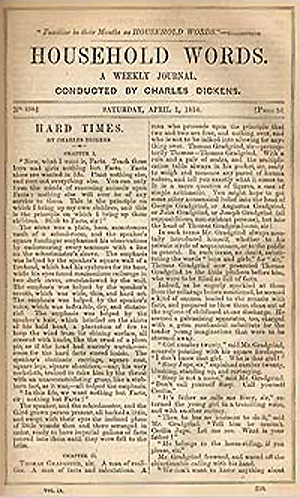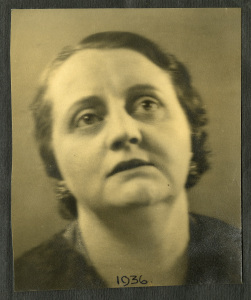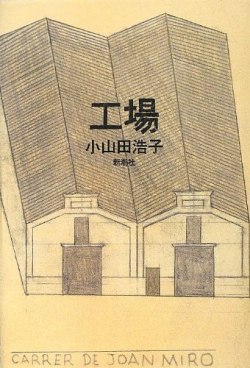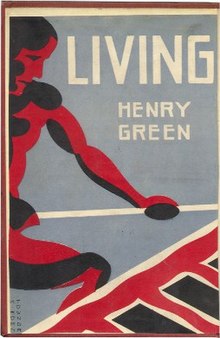
Light in August is a 1932 novel by American author William Faulkner. It belongs to the Southern gothic and modernist literary genres.

Henry Green was the pen name of Henry Vincent Yorke, an English writer best remembered for the novels Party Going, Living, and Loving. He published a total of nine novels between 1926 and 1952. He is considered as one of the group designated in the 1920s/30s as the 'Bright Young Things' by the tabloid press.

Margaret Forster was an English novelist, biographer, memoirist, historian and critic, best known for the 1965 novel Georgy Girl, made into a successful film of the same name, which inspired a hit song by The Seekers. Other successes were a 2003 novel, Diary of an Ordinary Woman, biographies of Daphne du Maurier and Elizabeth Barrett Browning, and her memoirs Hidden Lives and Precious Lives.

Hard Times: For These Times is the tenth novel by English author Charles Dickens, first published in 1854. The book surveys English society and satirises the social and economic conditions of the era.

Mrs McGinty's Dead is a work of detective fiction by British writer Agatha Christie, first published in the US by Dodd, Mead and Company in February 1952 and in the UK by the Collins Crime Club on 3 March the same year. The US edition retailed at $2.50 and the UK edition at nine shillings and sixpence (9/6). The Detective Book Club issued an edition, also in 1952, as Blood Will Tell.
The period of Modernistic Swedish literature started in the 1910s. Some regard 1910 itself as the beginning, when August Strindberg published several critical newspaper articles, contesting many conservative values. Several other years are also possible. What is undisputed is that with the advent of social democracy and large labor strikes, the winds of the 1910s blew in the direction of a working class reformation.

Saturday Night and Sunday Morning is a 1960 British kitchen sink drama film directed by Karel Reisz and produced by Tony Richardson. It is an adaptation of the 1958 novel by Alan Sillitoe, with Sillitoe himself writing the screenplay. The plot concerns a young teddy boy machinist, Arthur, who spends his weekends drinking and partying, all the while having an affair with a married woman.
Proletarian literature refers here to the literature created by left-wing writers mainly for the class-conscious proletariat. Though the Encyclopædia Britannica states that because it "is essentially an intended device of revolution", it is therefore often published by the Communist Party or left-wing sympathizers, the proletarian novel has also been categorized without any emphasis on revolution, as a novel "about the working classes and working-class life; perhaps with the intention of making propaganda". This different emphasis may reflect a difference between Russian, American and other traditions of working-class writing, with that of Britain. The British tradition was not especially inspired by the Communist Party, but had its roots in the Chartist movement, and socialism, amongst others. Furthermore, writing about the British working-class writers, H Gustav Klaus, in The Socialist Novel: Towards the Recovery of a Tradition (1982) suggested that "the once current [term] 'proletarian' is, internationally, on the retreat, while the competing concepts of 'working-class' and 'socialist' continue to command about equal adherence".
"The Garden Party" is a 1922 short story by Katherine Mansfield. It was first published in three parts in the Saturday Westminster Gazette on 4 and 11 February 1922, and the Weekly Westminster Gazette on 18 February 1922. It later appeared in The Garden Party and Other Stories. Its luxurious setting is based on Mansfield's childhood home at 133 Tinakori Road, the second of three houses in Thorndon, Wellington that her family lived in.

Union Street is the first novel by English author Pat Barker, published by Virago Press in 1982. It describes the lives of seven working-class women living on Union Street and how they respond to the changes brought about by deindustrialisation. It is set in northeastern England during the 1970s. The 1990 movie Stanley & Iris is a loose adaptation of the novel.

Kate Dayus was an English writer from the West Midlands.
Una Lucy Silberrad was a British author. She wrote about 40 novels, often characterized as "middlebrow", which highlight conservative middle-class virtues even as they focus on capable female protagonists.

Munitionettes were British women employed in munitions factories during the time of the First World War.

The literary tradition of Birmingham originally grew out of the culture of religious puritanism that developed in the town in the 16th and 17th centuries. Birmingham's location away from established centres of power, its dynamic merchant-based economy and its weak aristocracy gave it a reputation as a place where loyalty to the established power structures of church and feudal state were weak, and saw it emerge as a haven for free-thinkers and radicals, encouraging the birth of a vibrant culture of writing, printing and publishing.

Thumbs Up is a 1943 American musical drama film producted by Albert J. Cohen for Republic Pictures and directed by Joseph Santley. The film stars Brenda Joyce, Richard Fraser and Elsa Lanchester. The screenplay was written by Frank Gill Jr. based on a story idea by Ray Golden and Henry K. Moritz. Musical direction was by Walter Scharf, words and music by Sammy Cahn and Jule Styne respectively. The film was released on July 5, 1943.

Winifred Horrabin, née Batho, was a British socialist activist and journalist.

Valeria Luiselli is a Mexican-American author. She is the author of the book of essays Sidewalks and the novel Faces in the Crowd, which won the Los Angeles Times Art Seidenbaum Award for First Fiction. Luiselli's 2015 novel The Story of My Teeth was a finalist for the National Book Critics Circle Award and the Best Translated Book Award, and won the Los Angeles Times Book Prize for Best Fiction, and she was awarded the Premio Metropolis Azul in Montreal, Quebec. Luiselli's books have been translated into more than 20 languages, with her work appearing in publications including, The New York Times, Granta, McSweeney's, and The New Yorker. Her book Tell Me How It Ends: An Essay in 40 Questions was a finalist for the Kirkus Prize in Nonfiction and the National Book Critics Circle Award in Criticism. Luiselli's 2019 novel, Lost Children Archive won the Carnegie Medal for Excellence in Fiction.

Mandy Theresa O'Loughlin, known professionally as Kit de Waal, is a British/Irish writer. Her debut novel, My Name Is Leon, was published by Penguin Books in June 2016. After securing the publishing deal with Penguin, De Waal used some of her advance to set up the Kit de Waal Creative Writing Scholarship to help improve working-class representation in the arts. The audiobook version of My Name is Leon is voiced by Sir Lenny Henry. De Waal has also published short stories, including the collection Supporting Cast (2020). She is visiting professor in Creative Writing at the University of Leicester.

Jessie Eden was a British trade union leader and communist activist, most famous for leading between 40,000 and 50,000 households during the Birmingham rent-strike of 1939.

The Factory is a proletarian novella written by Japanese author Hiroko Oyamada. Originally written and published in Japan in 2013 by Shinchosha Publishing Co., the book was translated into English by David Boyd and published in 2019 by New Directions Publishing Corporation. The uniquely structured novella switches between the perspectives of three characters as they begin jobs at a joint living and working facility known as "the factory."
















